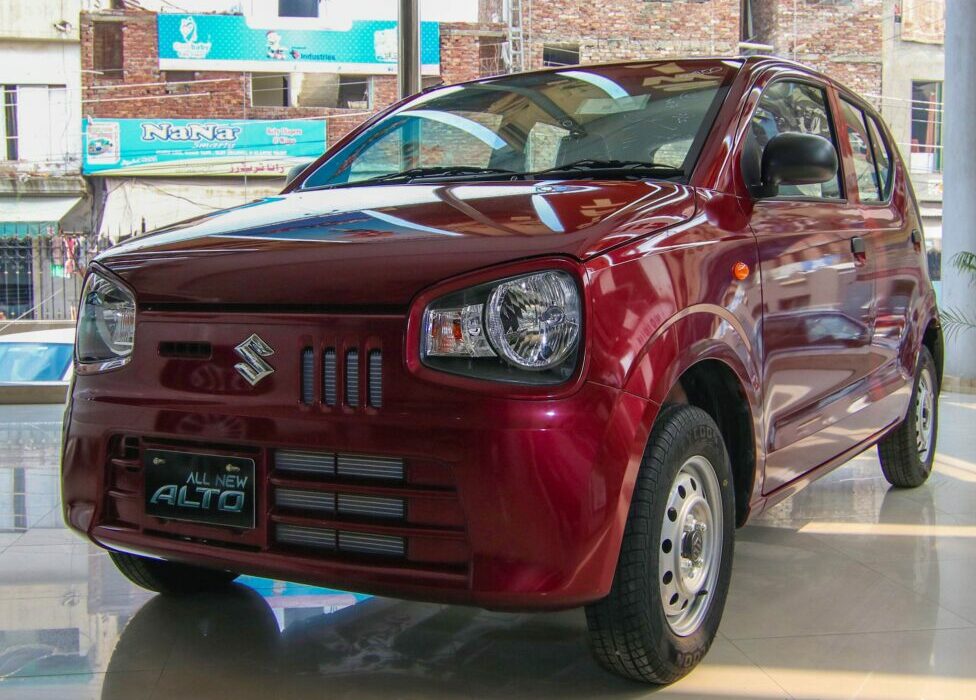Pakistan had a thriving industrial sector in the late 1960s, which was severely damaged by the Nationalization program, which was implemented on January 1, 1972. This badly dented the investor confidence, and many left the country never to return. The automobile industry was one of the several industrial sectors that suffered.
In the early 90s however, Pakistan again decided to develop its auto industry. Suzuki’s new Bin Qasim plant in Karachi became operational in 1991 and in subsequent years, was joined by Toyota and Honda. Import restrictions were placed to favor locally produced vehicles, as the market during the 1970s and 80s was dependent on imports mainly dominated by Japanese cars.
Related: How Can Car Sales Improve in Pakistan?
Even though the government took this step more than thirty years ago, the auto industry is still in its infancy. Large promises were made, but they were never seen through to their fulfillment. The deletion program was erased from priorities, true localization remained a distant dream, and instead of achieving volumes, the market was contained to produce a limited number of vehicles, allowing businesses to generate ample profits but the country’s industry suffered.
Volume sales are critically important for any automotive industry for several reasons. Here are some key points highlighting the significance of achieving volume sales:
Economies of Scale:
Higher volume sales allow manufacturers to achieve economies of scale. This means that as production increases, the average cost per unit decreases. This can lead to lower production costs, which can contribute to higher profit margins.
But in Pakistan, assemblers have always blamed “low demand” to justify a miniscule production. Plants have typically been operated at less than full capacity, and demand has always been so strong that if you go out to book a vehicle, it is always delivered several months later.
Cost Reduction:
With increased production volumes, automakers can negotiate better deals with suppliers, leading to lower material costs. This reduction in per-unit costs can positively impact the overall profitability of the automotive industry.
Competitive Pricing:
Higher volume sales provide manufacturers with the flexibility to offer competitive pricing. This is crucial in the highly competitive automotive market, as consumers often make purchasing decisions based on price.
But in an oligopolistic market like ours, this is inverse. Due to an unchecked market, and an efficiently maintained demand-supply gap, automakers have the liberty to price their cars on their will focusing on profits rather than competitiveness.
Brand Strength and Recognition:
High sales volume contributes to brand visibility and recognition. Brands with a strong market presence are more likely to attract consumers and build a loyal customer base. This, in turn, can lead to sustained sales over the long term.
Imagine the likes of the Honda Brio or N360 running in competition with Suzuki Swift & Alto, or Toyota offering Yaris and Mira (Daihatsu) to compete against the aforementioned two. However, the market has always been structured to leave the playfield of hatchbacks for Suzuki to enjoy, and sedans and larger automobiles shared by Toyota and Honda. There is no genuine competition.
Financial Stability:
Volume sales provide a steady stream of revenue, contributing to the financial stability of automotive manufacturers. This stability is crucial for weathering economic downturns, investing in new technologies, and maintaining a robust business infrastructure.
Since automakers have never tried to achieve volumes here, they count on profitability. By launching a limited number of expensive cars that guarantee better profits compared to focussing on achieving volumes. This results in business getting stronger & the revenue expatriated out of the country to the principals, while the country’s auto industry remains stagnant in terms of volumes.
Job Creation and Economic Impact:
A thriving automotive industry, driven by high sales volume, has a positive impact on employment. Beyond the manufacturers themselves, the industry supports jobs in various sectors, including suppliers, dealerships, maintenance, and services.
Over here, we have often heard local assemblers talking about creating jobs. But they have never truly tried to enhance it, or have they? If say generating 5,000 jobs is all that important, why not take that number to 10,000 or more, or maybe even plan a roadmap to elevate generating 50,000 automotive jobs by 2030?
Economic Benefits for the Country
A successful automotive industry with high-volume sales can be an essential player in the economy. This can lead to positive relationships with governments, potentially influencing policies related to the industry, such as regulations and incentives.
In Pakistan, it has been the other way around, while everywhere else incentives are granted based on volumes, over here automakers demand incentives first to achieve volumes later but once those are granted there is no one to monitor the progress of these players. That is why Pakistan has never been able to go past the 250,000 units per year sales mark. But in recent years that number has fallen to around a dismal 125,000 units a year. Moreover, a constant switch in government policies, duties & taxes, and fluctuating currency value, etc are some of the major hindrances in achieving volumes.
Major Brands Recognize a Key Market, Driven by Volumes
One of the main reasons why we don’t see major brands entering here is the lack of volumes. Since during the last 30 years government has never done anything to uplift the production numbers, the market remains dependent on a handful of players who control it in an oligopolist way. Thailand, Indonesia, Malaysia, and India, for example, have been able to attract major global car companies primarily owing to volumes. On the other hand, despite being the world’s fifth most populous country, Pakistan produces (assembles) only about 0.1 million vehicles annually, which is a sheer embarrassment.
Volumes Allow Exports, Generating Revenue for a Country
Achieving volumes also allows for the surplus to be exported to other markets. High export volumes not only enhance profitability through economies of scale but also provide diversification, global market presence, and a competitive edge, contributing to economic growth and investment opportunities.
Related: Why is Pakistan Still a Sub-250K Vehicle Market?
In summary, volume sales are integral to the overall health and success of the automotive industry. They enable cost efficiency, innovation, and competitiveness, and contribute to the industry’s economic and social impact, as well as generating revenue for the country.

I don’t eat, sleep or dream of cars, I am just someone who loves to see, think & write about cars. I love Ferrari in Pink but they won’t make one for me. I use X to write my full name, but that doesn’t mean I’m inspired by Altis X, in fact, my dad hates it 😀 Btw I’m an occasional writer so don’t expect too much from me 🙂




